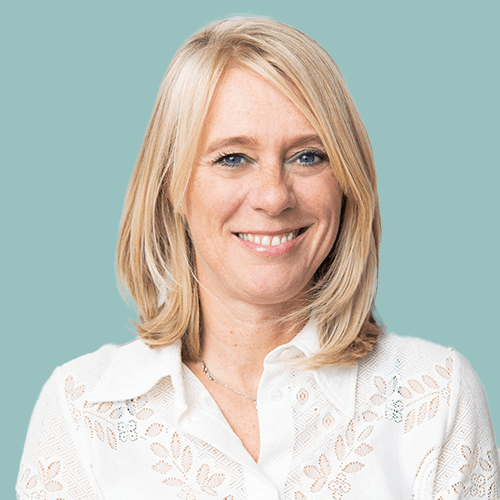
Building bridges to better wellbeing
Tobba Thorbjorg, CEO of Kara Connect, speaks to Jennifer McShane about her journey from politics to pioneering mental health platforms, challenges and aspirations for the future
How did you get involved with Kara Connect?
I’m a cognitive psychologist by training, and my career started in researching brain development in children, adolescents, and adults. From there, I found myself in politics — something I never thought I’d do — but it’s such an important arena for change, especially in the Nordic systems where public support is essential.
I was a councillor in Reykjavik, Iceland, for 12 years and also advised the Minister of Education. My focus was always on improving access for children who needed specialist help, whether for autism, speech problems, or psychological and occupational therapy. I saw gaps in the system, particularly in how funding and support were structured, and when I left politics, I decided to address those gaps through digital platforms. That’s when Kara Connect was born.
What does Kara Connect do?
Kara Connect has three main components. First, it’s a secure workstation for practitioners to conduct online meetings. We have about 3,000 practitioners using it across 60 different specialities, from speech therapists to psychologists. Secondly, we’ve created wellbeing hubs tailored to companies. These hubs act as a gateway for employees to access help, such as mental health support, communication skills training, or menopause specialists. Each hub is customised to the company’s needs, and employees can connect with professionals who speak their language and understand their culture. Some of our first customers said whatever they need, it’s on the platform – they love that. And thirdly, HR managers can monitor the platform’s usage to understand what their workforce needs. Privacy is key — conversations between employees and practitioners are completely siloed. This ensures trust, which is vital for the platform’s success.
What inspired you to create the wellbeing hubs?
The shift to digital services has fundamentally changed how people access care. Gone are the days of waiting in line for neighbourhood services; everything happens online now. This has made workplaces the first place people look for help, especially when public systems have such long waiting times. We also noticed the unique challenges Gen Z has brought to the workforce. This generation is incredibly talented but faces higher levels of anxiety, largely due to social media. We’re seeing a lot of ‘quiet quitting.’ Employers are grappling with how to support them, and that’s where our wellbeing hubs come in.
What has the response been like from companies?
Honestly, I was a bit nervous when we launched the wellbeing hubs. I wondered if employers would feel that providing this kind of support should be the health system’s responsibility. But the feedback has been overwhelmingly positive. Employers want to help their teams feel safe and supported. They understand the value of preventative measures — not just for their employees’ well-being but also for their own peace of mind. Many HR managers tell us how much time they spent on persona issues before adopting Kara Connect. Now, they can offer their employees a clear pathway to help without taking on the responsibility themselves. That’s a win-win for everyone.
What challenges have you faced in leading this company?
The biggest challenge right now is navigating budget constraints. Companies are under pressure to cut costs, but they also see the growing need for mental health support in the workplace. It’s a delicate balance. Another challenge is educating people about what we offer. We’re not just another Employee Assistance Programme (EAP). Our platform has a 20% engagement rate, which is double the industry standard. That’s because we focus on live, human support, and most importantly, human connection — no videos, no AI. It’s all about real connections with practitioners.
What have been some of the highlights for you and the team?
It is incredibly rewarding to see the impact our platform has. On average, 55% of bookings on our platform are for mental health professionals, which tells us we’re addressing a real crisis and making a difference. Another highlight is our team. We’re a small but incredibly aligned group of 24 people spread across Dublin, Reykjavik, and a few other locations. Everyone is so passionate about what we’re doing – I’m really proud of what we’re building.
What’s next for Kara Connect?
We’re focused on nurturing the practitioner side of the platform. I’d also love to dive deeper into research — understanding what interventions work best and demonstrating the value of investing in mental health support. We’re already seeing great results, but I’m eager to back those up with more data. On a broader level, we’re continuing to expand. Although the wellbeing hubs are relatively new, they’re already gaining traction. We want to create something people can trust where they can access help easily and privately.
What advice would you give to others looking to innovate in this space?
Don’t underestimate the importance of trust. It is really important and you need to build systems around that. Stick to your passion because this is an evolving space, and it’s easy to get distracted.
